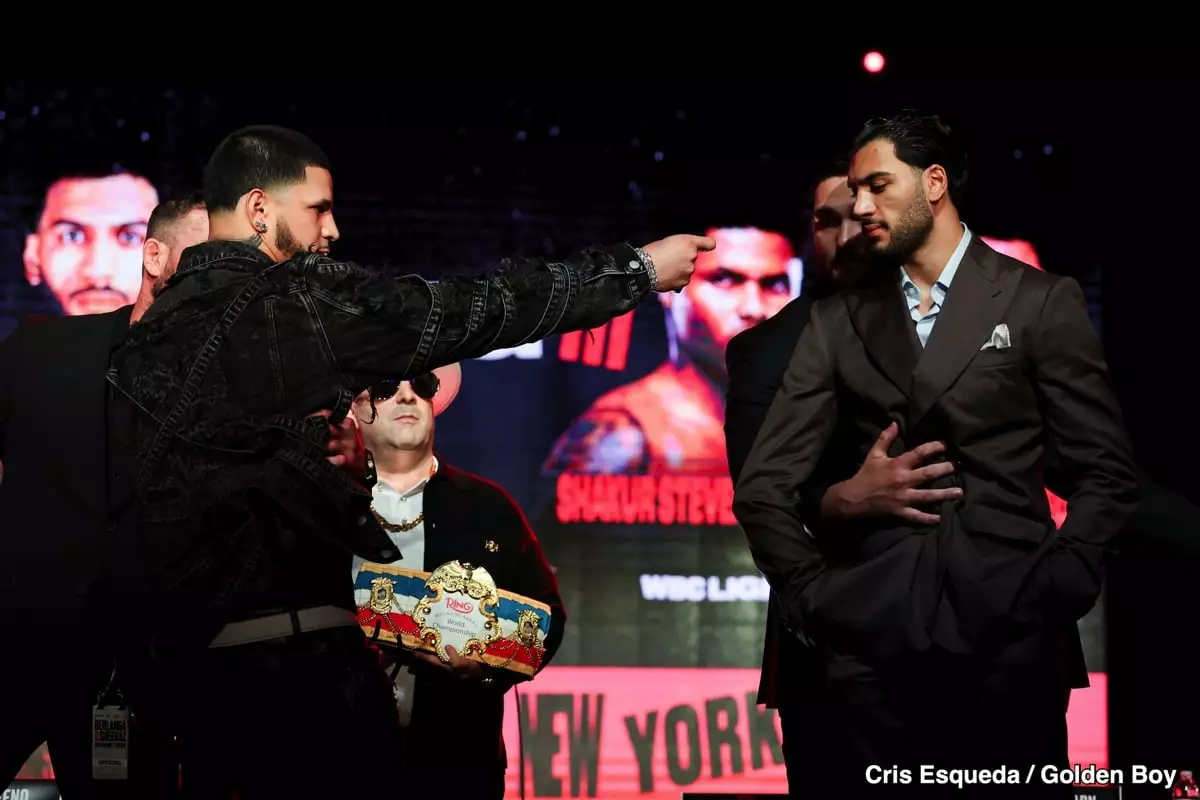In the lead-up to Edgar Berlanga’s July 12th showdown with Hamzah Sheeraz at Queens, New York, Berlanga claims he has already mentally defeated his opponent. Presenting Sheeraz as a mere obstacle on the road to a potentially lucrative bout with Canelo Alvarez, Berlanga’s pre-fight bravado reeks of overconfidence. He openly admits to viewing Sheeraz as if he were Alvarez himself, seeking to “get him out of the way” before moving on to bigger names. While such psychological tactics can sometimes unsettle an opponent, Berlanga’s mental positioning might expose an underlying insecurity rather than genuine readiness.
Berlanga’s remarks also highlight a critical aspect of boxing: the mental chess match that takes place inside and outside the ring. Fighters often use mind games to intimidate or distract opponents, but this approach is a double-edged sword. It can bolster one’s confidence or cause one to underestimate the dangers posed by a rival. In Berlanga’s case, equating Sheeraz to Canelo might seem like a sign of respect, but it also risks distracting him from the realities of his own limitations.
The Reality of Berlanga’s Career: Manufactured Hype and Questionable Progression
Critically examining Berlanga’s career trajectory reveals a narrative meticulously shaped by promotion rather than boxing meritocracy. His initial undefeated streak of 16 straight knockout wins came against a string of low-tier, “tomato can” opponents provided by Top Rank, the promotional company that skillfully built up his reputation. However, as soon as Berlanga faced mid-level fighters, his weaknesses became apparent, and his performances faltered.
This trend culminated in his ill-advised jump to a title shot against Canelo Alvarez—a fight that many viewed as premature and unjustified. Rather than earning his shot through consistently challenging and defeating top contenders, Berlanga’s path was paved by promoters looking to manufacture marketable narratives, rather than genuine competition. His split from Top Rank and subsequent signing with Eddie Hearn only slightly altered his path, as he continued to face underwhelming opposition prior to this upcoming fight.
Hamzah Sheeraz: An Underrated Threat or Convenient Scapegoat?
Hamzah Sheeraz, with his undefeated record on paper, enters this bout carrying momentum but also criticism. He was controversially handed a draw in his last fight against Carlos Adames, which cast doubt over his standing in the division. This fact, combined with Berlanga’s dismissive attitude, sets an intriguing stage for their clash.
While Berlanga sees Sheeraz as a mere stepping stone to a future Canelo fight, the reality could be vastly different. Sheeraz’s own career has shown flashes of promise that might outshine Berlanga’s untested facade when faced with genuine adversity. For fight fans craving fresh talent and genuine competition, Sheeraz represents an opportunity for new blood to disrupt the current narratives dominated by commercially favored fighters.
The Fan Perspective: Yearning for Authentic Competition over Promotional Spin
Among the boxing community, there is growing frustration with how matchmaking and promotional allegiances shape who gets to fight and when. Berlanga’s boisterous talk about dispatching Sheeraz and stepping into a rematch with Canelo feels premature and disconnected from the broader consensus that he still has much to prove.
Fans are eager to see rising contenders with authentic credentials, such as Christian Mbilli, Osleys Iglesias, Lester Martinez, Janibek Alimkhanuly, and Yoenli Hernandez, rewarded with meaningful opportunities before recycled stories like a Berlanga-Canelo rematch get pushed. At the heart of this discontent is a desire for meritocracy in boxing—a system where fights happen based on skill, results, and readiness rather than narrative convenience or financial calculus.
Why Berlanga’s Confidence Might Be His Greatest Weakness
Berlanga’s self-assuredness is undeniable, but it may mask critical vulnerabilities. Confidence without consistent performance against quality opponents equates to hubris—a dangerous trait in a sport unforgiving of complacency. If Berlanga repeats previous mistakes or underestimates Sheeraz’s capabilities, his “mental victory” could quickly become a hard, tangible defeat in the ring.
Boxing history is littered with fighters who faltered because their belief outpaced their abilities. Berlanga’s trajectory suggests he may be following a similar path if he relies too heavily on mind games rather than rigorous preparation and respect for his opponent’s skill set. Though he talks of greatness, greatness is forged through challenge and triumph over adversity—not through skipping steps or conjuring illusions of victory before the first bell rings.


Leave a Reply